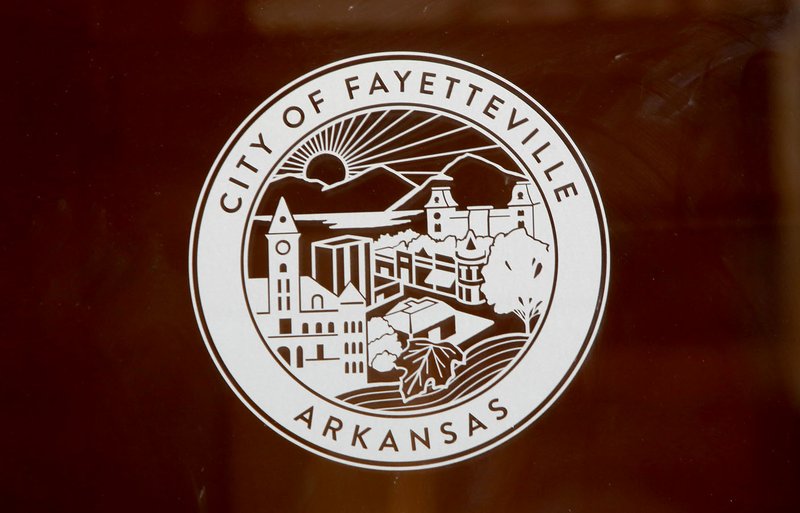FAYETTEVILLE -- City leaders want houses built in certain zoning districts to have garages farther back in the front, to a side or in the back. A way to do that is to require skinnier driveways than those found in conventional subdivisions, they say.
Developers say the proposed change in zoning code is an overstep that would inhibit their ability to build what customers want.
Driveway width
Under Fayetteville’s current development code, lots 70 feet wide or more can have a maximum 24-foot-wide driveway. Lots 50 to 69 feet wide can have up to a 20-foot-wide driveway. Lots of fewer than 50 feet can at most have an 18-foot-wide driveway.
Source: Staff report
Single-family homes are allowed in 24 of the city's zoning districts. The change would affect 16 districts that have regulations pertaining to the shape and form of buildings in the zone. In planning terminology, those types of zoning districts are called form-based districts.
Traditionally, the use of the buildings is the greatest factor in determining the zoning district.
The proposal the City Council will take up for the second time Tuesday would limit driveway width in form-based districts to 20% of the overall width of the lot, or at least 10 feet.
Planning Commission Chairman Matt Hoffman said the idea is to have neighborhoods built in one of those zones be distinctive from a traditional suburb with garages sticking out from the front of the houses. By requiring skinnier driveways in those zones, a two-car garage would have to be recessed from the front of the house, placed on the side or in the rear, in order to fit on the lot, he said.
A developer has the option to build homes that way with how the form-based codes are written now. However, there's nothing written into the language that makes it mandatory.
Planning commissioners and City Council members have found developers will follow the minimum requirements and build neighborhoods under a form-based zone that could have been built under a conventional one, Hoffman said.
"From my perspective, we've only fed the market one type of product," he said. "So it's no wonder that people are only buying that one kind of house right now. I think if we were to diversify a little bit, we'd find people are actually willing to buy a whole lot of different kinds of houses."
Hoffman presented a slide to the City Council on Oct. 1 showing aerial views of two developments in the city, one built under one of the form-based districts and another built under a conventional single-family district. Both looked about the same.
The issue many developers and real estate professionals have is the city clearly has a preference for form-based developments over conventional ones, said Don McNaughton with McNaughton Real Estate. Members of the Northwest Arkansas Board of Realtors and Northwest Arkansas Home Builders Association packed City Hall on Oct. 1 to voice their opposition.
Their position hasn't changed, McNaughton said. It shouldn't be the business of city officials to dictate the market, he said. If passed, the measure would limit property owners' rights to build what they want, he said.
"The buyers will determine what's popular," he said. "This front-load, two-car garage thing is selling faster than any neighborhood in town. If they hated it, the public wouldn't buy it."
Hoffman said developers would still have the option to request a conventional zone. McNaughton said the Planning Commission and City Council would have the option to deny those requests, effectively backing developers into a corner.
Hoffman said the move would at least foster a discussion, whereas now the decision-makers are left to hope the development meets the intention of a form-based code. At least if a conventional zone is requested, commissioners and council members will know what to expect, he said.
Many of the developers and real estate professionals who spoke Oct. 1 expressed concern about having to change their projects midstream. The proposal as written would take effect six months after its passage. Development Services Director Garner Stoll suggested the council have the measure take effect a year after passage. He also suggested exempting any projects that had a preliminary plan approved within the past five years.
City Attorney Kit Williams, in a memorandum to council members, suggested exempting any projects for which a developer had purchased the property before the change in code. The city could be subject to litigation otherwise because of a developer's potential financial loss, he said.
McNaughton said including an exemption for past projects is a step in the right direction. Hoffman said he has been meeting with developers and city planners to include some kind of exemption for past projects in the proposal, which he plans to present to the council Tuesday.
The Northwest Arkansas Board of Realtors and Northwest Arkansas Home Builders Association last week put out news releases saying the proposal flies in the face of a state law barring cities from regulating residential design standards. The law, sponsored by Sen. Bart Hester, R-Cave Springs, was enacted this year soon after Fayetteville and Springdale had proposed new residential design standards.
Williams said he disagreed with that assertion. The law makes an exception for the orientation of structures, he said.
NW News on 10/14/2019
